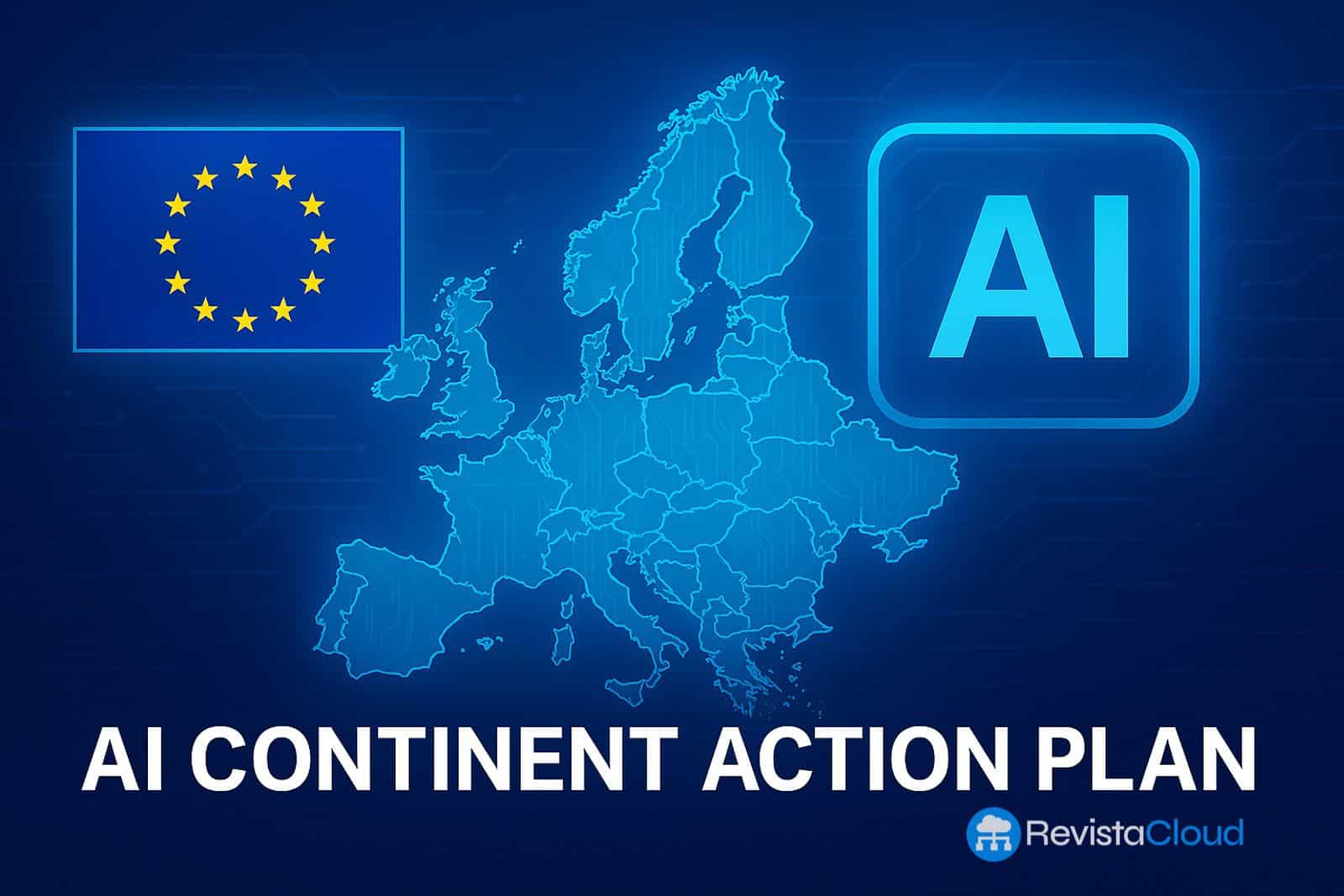The European Commission presents the AI Continent Action Plan: AI factories, chips, talent, and regulation to make Europe a global powerhouse in artificial intelligence.
The global race for leadership in artificial intelligence (AI) takes a new turn with the launch of the AI Continent Action Plan, an ambitious roadmap driven by the European Commission to position Europe as a global benchmark in innovation, talent, and responsible development in AI.
Announced by President Ursula von der Leyen during the AI summit held in Paris in February, the plan is built on five strategic pillars ranging from the construction of large technological infrastructures to the training of experts, alongside a push for quality data and regulations that ensure trust in technology.
AI Factories and Gigafactories: Europe’s bet on advanced computing
The future Gigafactories, even more ambitious, will be equipped with up to 100,000 advanced AI chips, quadrupling current capacity, and will enable the training of complex models at unprecedented scale. The Commission has launched a call for interest for public-private consortia and announces that the InvestAI instrument will mobilize 20 billion euros to fund up to five of these facilities in different EU countries.
Additionally, the future Cloud and AI Development Act has been announced, a legislative proposal aimed at incentivizing the growth of sustainable data centers and tripling European capacity in the next five to seven years.
Data, algorithms, and real adoption: towards useful and scalable AI
Only 13.5% of European companies have adopted any AI-driven technology. To reverse this situation, the plan includes the creation of Data Labs, spaces dedicated to gathering and curating large volumes of high-quality data within AI Factories. This initiative will be complemented by a future Data Union Strategy, aimed at creating a genuine internal data market that allows for the scaling of AI solutions across the continent.
In parallel, the Commission will launch the Apply AI strategy in the coming months, which will seek to promote the adoption of artificial intelligence in strategic sectors, both public and private, such as healthcare, energy, transportation, and public administration.
Training and attracting talent: AI created by and for Europe
Understanding that talent is as critical as technology, the plan includes measures to attract international experts and bring back European researchers. Among the initiatives are:
- The AI Talent Pool, to facilitate the legal recruitment of non-EU professionals.
- The Marie Skłodowska-Curie ‘Choose Europe’ Scholarships.
- The upcoming AI Skills Academy, which will offer training and reskilling programs in AI and Generative AI for key sectors.
These actions aim to create legal pathways for highly skilled migration and ensure the supply of talent needed for a sovereign digital Europe.
Regulatory simplification: from the AI Act to business support
Another essential axis of the plan is the effective implementation of the AI Act, the world’s first comprehensive law on artificial intelligence, which will take effect in August 2024. To facilitate compliance, especially among SMEs and startups, the AI Act Service Desk will be launched as a one-stop help and guidance center.
Open participation and public consultations
The Commission has launched two public consultations today, open until June 4, 2025, to gather opinions on the Cloud and AI Development Act and the Apply AI strategy. A third consultation on the Data Union Strategy will be activated in May.
Additionally, dialogues will be organized with representatives from industry and the public sector to identify obstacles, opportunities, and priority use cases in the adoption of AI technologies.
A firm commitment to technological sovereignty
Executive Vice President Henna Virkkunen has been clear: “Artificial intelligence is at the heart of a more competitive, secure, and technologically sovereign Europe. The time to act is now.”
The AI Continent Action Plan is not just a strategy: it is a statement of intent. Europe wants to stop being a secondary player in the artificial intelligence revolution and become a leader, with a vision that combines innovation, sustainability, security, and democratic values.

